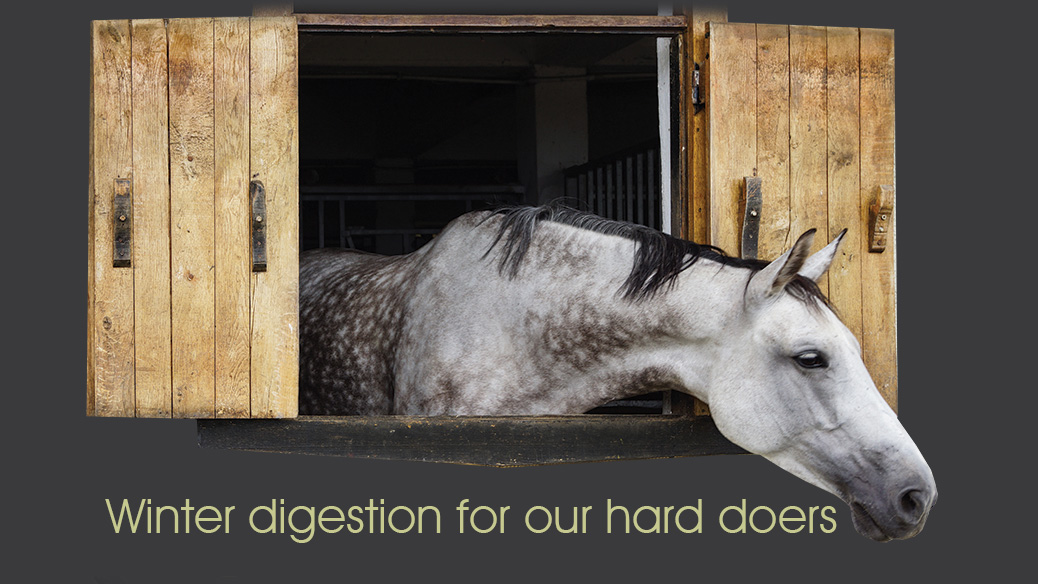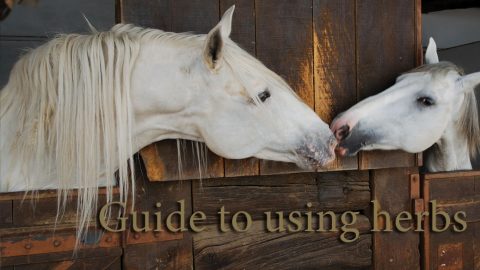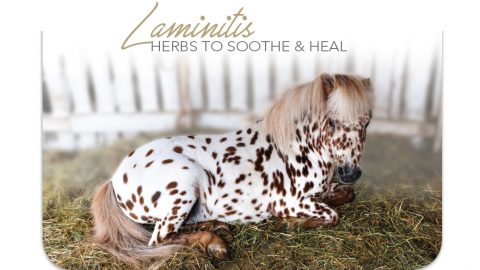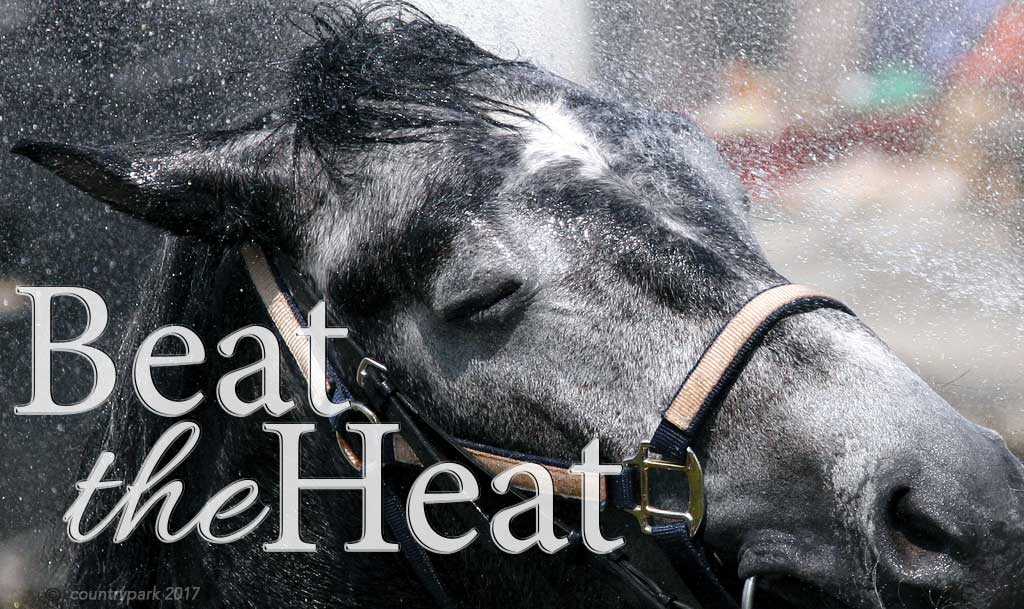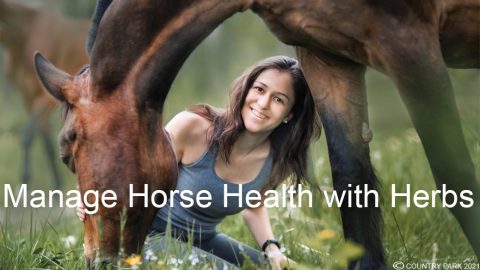‘Hard doers’ are naturally prone to be thin, will lose weight quickly, and have difficulty gaining weight. Some horses are metabolically inclined to be hard keepers while others have medical, psychological or environmental reasons for having difficulty in maintaining weight. Herbs can assist the hard doers. Those with an underlying medical condition should be explored with your veterinarian before adding herbs.
During winters, there are more chances of having acidity as the body’s metabolism tends to get sluggish, resulting in poor digestion. While developing tolerance for the cold temperatures, losing body heat to the surrounding cold air can impact normal digestive processes.
Ginger is a warming herb and can help improve circulation to all parts of the body, including the extremities. It is a well-received herb to include in feeds, and often 1 teaspoon per feed will support the gut and warm the joints. Ginger is known to absorb excess stomach acid, and thus helps in digestion, keeping acidity away.
Chamomile tea can ease digestive disorders related to changing weather and will help with building muscle condition. It combines well with Fenugreek seed, a herb that helps balance mucous in both the gut and respiratory system while it is supporting the body’s tolerance for cold and the immune system.
When exposed regularly to low temperatures, the body will take this as a signal to save energy and heat, thereby slowing down your metabolism. With this slow metabolism, the digestion is not optimal. Herbs can keep the digestion running smoothly and continuously.
Nettle leaf is a great blood tonic and is high in bioavailable iron and vitamins. It stimulates circulation and contains chlorophyll. It can also assist arthritis which is helpful throughout winter. Rosehip granules are one of the very best sources of natural iron and vitamin C. They also contain biotin for optimum hoof health.
With most States experiencing more wet weather than the last few years, clivers is another nutritional herb that supports the hooves and assists with conditions exacerbated by wet ground such as seedy toe or hoof abscesses.
Chamomile, clivers, and rosehips combined will strengthen immunity during prolonged wet weather periods. Most horses will benefit from 1 to 2 heaped tablespoons of each daily.
Yarrow is another herb that can be useful in the cooler weather. It is good at bringing a healthy circulation to extremities, helping with mild inflammation and bruising, a slip in a wet paddock, and support older stiff joints with nettle leaf. Again 1 to 2 heaped tablespoons as a general support daily can be included in a winter mix.
Cinnamon is a warming agent regarded as an antiseptic and digestive tonic with the ability to warm horses that are cold and suffering from poor circulation. It can also play a useful role with horses that are metabolically challenged and 1 teaspoon daily can be a supportive aspect for insulin resistant horses.
 With winter being a time for snotty noses and watery eyes, using herbs to balance the mucous in the gut can assist horses more vulnerable to respiratory issues. Slippery elm bark or marshmallow root can combine with fenugreek seeds to help with those niggly drips.
With winter being a time for snotty noses and watery eyes, using herbs to balance the mucous in the gut can assist horses more vulnerable to respiratory issues. Slippery elm bark or marshmallow root can combine with fenugreek seeds to help with those niggly drips.
If infection is involved, echinacea can be a good immune system support in the early stages, while thyme can assist with infectious coughs and recovery. Thyme is a good energy pick-me-up for old and tired horses and can be combined with nettle for horses with post viral lethargy.
These herbs will combine well at 1 to 2 tablespoon amounts and depending on the severity of the infection, it is better to give two or three times a day rather than one big serve a day. As the horse picks up, then settle into a once or twice daily support to get back to optimal health and condition.
Garlic is another warming herb to support against the winter ills. Smaller amounts are often more effective when giving long term. Because of garlic’s ability to stimulate the immune system, if your horse needs a medication to fight an infection, put your garlic aside for that time as it can be too effective and work against what the medication is trying to achieve.
If looking at supporting your ‘hard doer’ over winter, choose three to five herbs that best suit your environment and the horse’s circumstance. Often a teaspoon of the spices or a tablespoon of the cut herbs is plenty in combination per serving. If your horse is already receiving herbs and you just want to tweak his approach for the colder months, adding one herb that has a circulatory stimulating effect may be enough to work with their current regimen. For example, if they are on the Winter Blend or Autumn Blend , 1 teaspoon of ginger will add that extra warmth.
If when the weather is warmer and your horse is still a hard doer, consider the Summer Blend with its nutritional and digestive combination of herbs.
Disclaimer: The information provided in this article is for educational purpose only and is not meant to replace veterinary advice or treatment.
Copyright: Catherine Bird, who has been an equine natural therapist for 28 years working closely with Country Park Animal Herbs for over 20 years offering advice to their clients.

